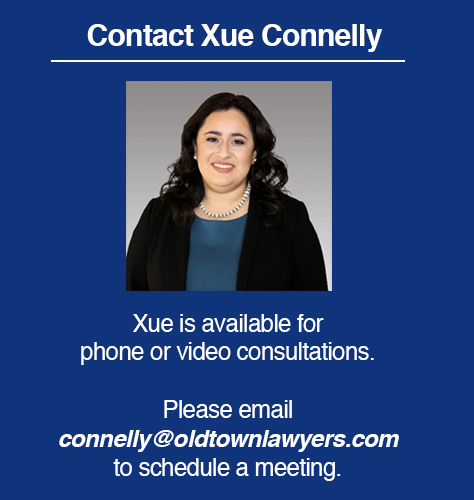Many people are feeling the financial impact of the coronavirus pandemic—having work hours cut or being laid off. Bankruptcy attorney Xue Connelly weighs in on how to navigate these uncertain times. Connelly explains how bankruptcy can be a good way to attain financial relief.
Focus on Paying Your Essential Bills First
For those with limited income or who have been laid off due to COVID-19, Connelly says it’s crucial to prioritize your bills. “Focus on the essentials, including your utilities, car payments, and mortgage or rent payments so that you have the things you need to live.” Connelly says non-essential bills might include credit card payments. “Creditors calling you and asking for payments is hard and embarrassing, but the worst thing a credit card company can do is call you right now.” They can’t make you lose your home, and that’s important to remember when you have a lot of bills that you need to pay.
 It’s also important to remember that both our state and federal government are working hard to aid everybody that needs help. In one of its new programs, they are allowing a stop to foreclosures and evictions during this pandemic. However, if you fall behind on your mortgage or rent, once those protections stop, you’ll have a big payment to make in order to continue living where you are. So it’s extremely important to prioritize your essential payments.
It’s also important to remember that both our state and federal government are working hard to aid everybody that needs help. In one of its new programs, they are allowing a stop to foreclosures and evictions during this pandemic. However, if you fall behind on your mortgage or rent, once those protections stop, you’ll have a big payment to make in order to continue living where you are. So it’s extremely important to prioritize your essential payments.
How Can Bankruptcy Help Relieve Financial Burdens?
“Once you file for bankruptcy, the bankruptcy court allows for an automatic stay to be imposed, which stops any creditor from pursuing you while your bankruptcy is pending,” says Connelly. Immediately upon filing for bankruptcy, you will stop receiving phone calls from creditors, any scheduled foreclosures or evictions will be halted and creditors coming after you with any lawsuits will be stopped.
Should I File for a Chapter 7 or a Chapter 13 Bankruptcy?
While both Chapter 7 and Chapter 13 bankruptcies provide immediate relief, a Chapter 13 bankruptcy requires you to have a source of income in order to make payments. “During COVID-19, when so many people are out of work, a Chapter 7 bankruptcy is probably going to be the best bet for the individuals that need immediate assistance,” says Connelly. You can learn more about the difference between Chapter 7 and Chapter 13 bankruptcy here.
 Filing for Bankruptcy Electronically
Filing for Bankruptcy Electronically
The good thing about bankruptcy, especially right now considering coronavirus and social distancing, is that it is an electronic filing system, so it can be handled remotely. “As your bankruptcy attorney, I can meet with you over Zoom or Skype instead of in person. And the bankruptcy court has always functioned remotely so we can file at any time day or night, over the weekend and we can even file an emergency petition to get you relief immediately, without getting all of the information ready.”
Connelly says the bankruptcy court has created these programs to help individuals get financial relief at all times, but it’s particularly important to be aware of these options right now, when there’s so much uncertainty and movement going on with COVID-19.
About Xue Connelly
Xue Connelly is an associate at Friedman, Grimes, Meinken & Leischner PLLC, specializing in bankruptcy, wills, trusts and estates. Ms. Connelly helps individuals and small businesses throughout Northern Virginia protect their assets. She has extensive experience handling all forms of bankruptcy, including Chapter 7 and Chapter 13 for individuals, and Chapter 7 for businesses. She also concentrates on estate planning and administration, advising clients on the latest and most efficient asset-protection strategies.
About Gregory Wade
Gregory M. Wade was born in Washington, D.C. and raised in Northern Virginia. Since 1977 Mr. Wade has been engaged in the private practice of law in Northern Virginia and has been an active leader in the Bar and in the community.
